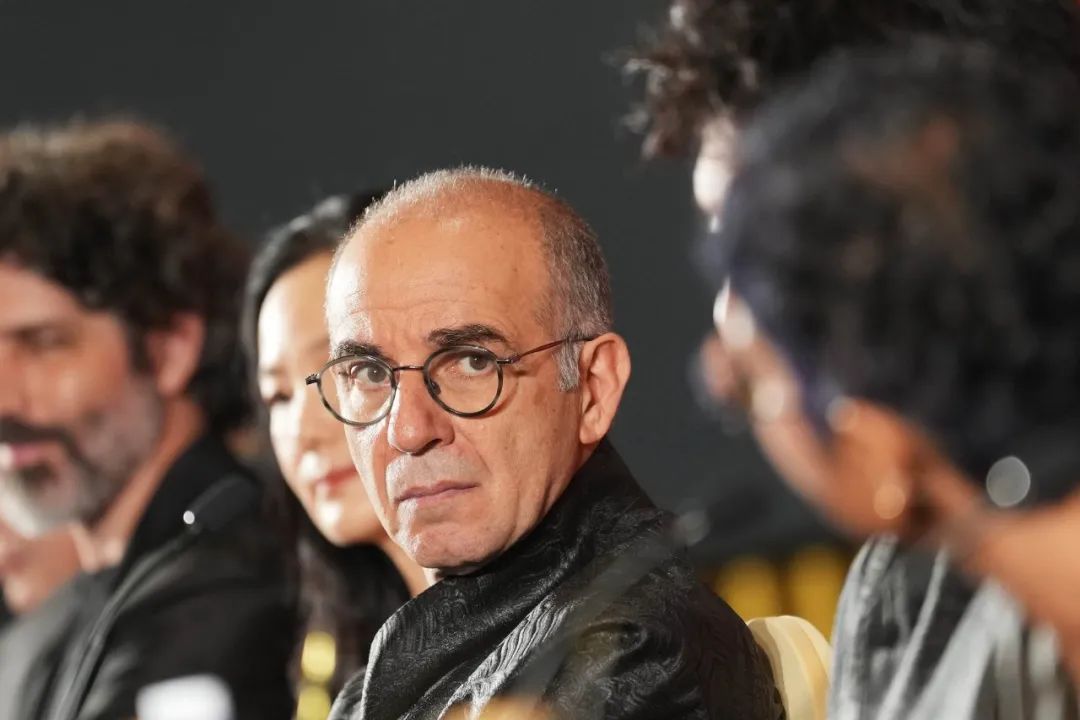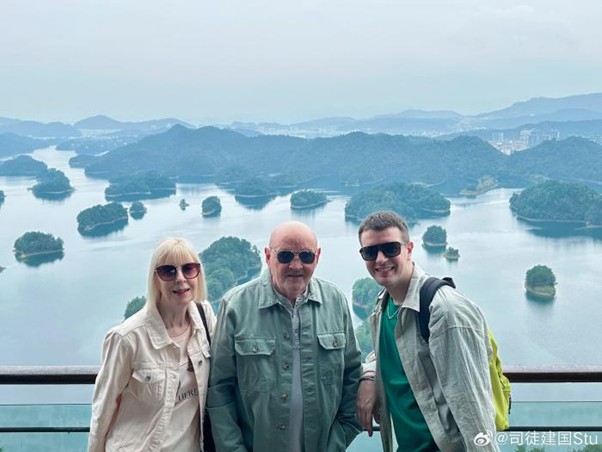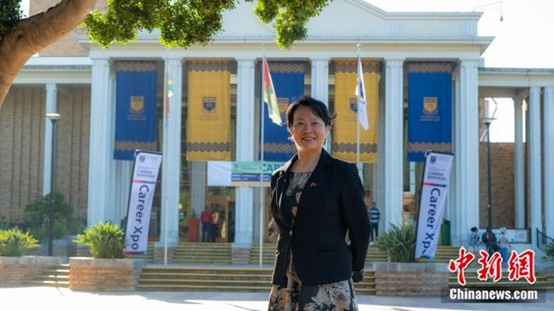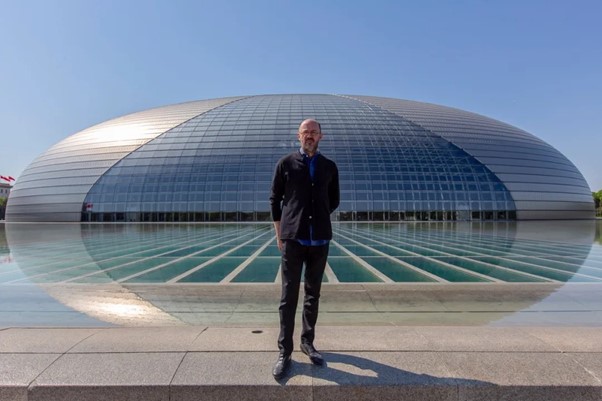Italian director Giuseppe Tornatore shared his opinion on the mystery of film of the ‘image magician’ , and talked about the changes in the development of world cinema.
The 27th Shanghai International Film Festival (SIFF) was held in Shanghai from 13th to 22nd June, and the famous Italian director Giuseppe Tornatore was at the helm of the judging of this year’s Golden Goblet Award in the main competition. He has directed films such as The Legend of 1900 and won the Grand Jury Prize at the 42nd Cannes Film Festival and the Best Foreign Language Film Award at the 62nd Academy Awards for his work on Cinema Paradiso.
As one of the representative figures of European cinema, Tornadore has earned the reputation of ‘image magician’ for his artistic quality of deconstructing the predicament of reality with magical strokes. His works have transcended languages and borders, arousing Chinese film fans’ love for the essence of cinema and inspiring a generation of filmmakers in their narrative and aesthetic pursuits.
This year marks the 130th anniversary of the birth of world cinema and the 55th anniversary of the establishment of diplomatic relations between China and Italy. Recently, Tornadore, who is nearly seventy years old, was interviewed by East Meets West in Shanghai, sharing the mystery of film of the ‘image magician’, and talking about the changes in the development of world cinema.
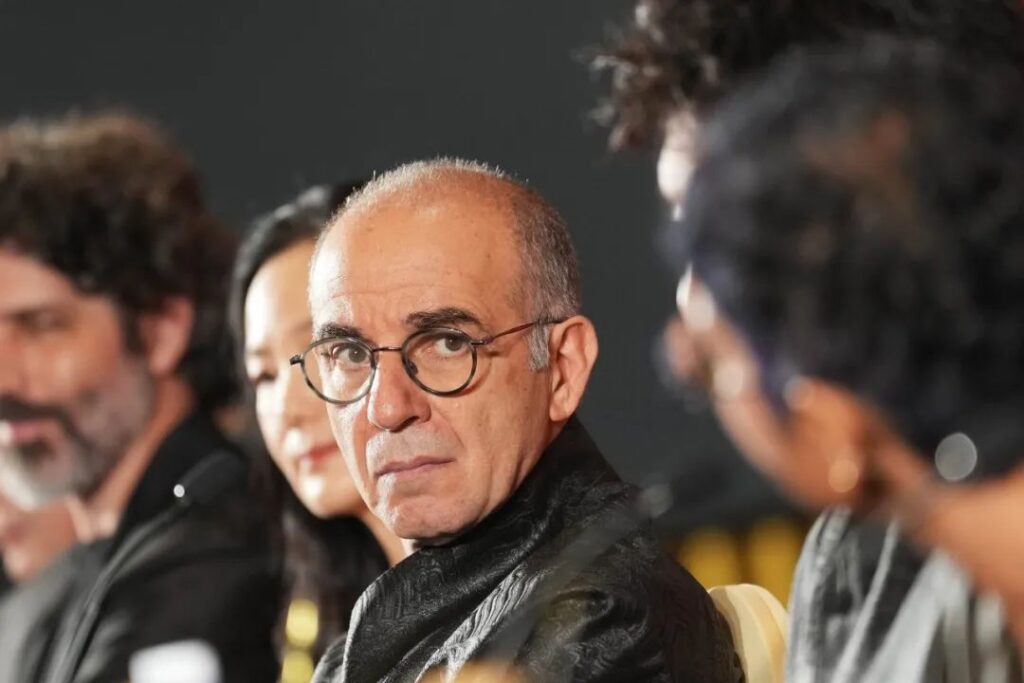
Giuseppe Tornadore. (Credit: Zhang Hengwei)
Giuseppe Tornatore, Italian director and screenwriter, directed Cinema Paradiso in 1988, which won the Grand Jury Prize at the 42nd Cannes Film Festival and the Best Foreign Language Film at the 62nd Academy Awards; The Legend of 1900 in 1998, which won the Best Director Award at the 43rd David Awards in Italy. In 2000, he wrote and directed Malèna, which was selected for the Main Competition of the 51st Berlin International Film Festival. In 2024, he was selected for the Main Competition Jury of the 81st Venice International Film Festival, and in 2025, he was appointed as the President of the Jury of the Main Competition of the Golden Goblet Award at the 27th Shanghai International Film Festival.
Reporter: You directed Cinema Paradiso, a classic masterpiece that has gone down in cinema history, which tells the story of the protagonist who finds the joy of his childhood life in film, and then moves away from home to become a film director. What is your experience in creating films?
Giuseppe Tornatore: Films help each of us to understand our own lives and what we can do to make them and society as a whole better. For filmmakers, if they can look into their own souls, they may also be able to gain insight into the souls of others. If they can tell a story with sincerity, the audience may be more willing to learn about your film and come into your film. This is the mystery of film expression.
Cinema Paradiso is a very typical example of a film that is closely related to my personal experience. When I decided to make this film, I simply wanted to tell this story, which I know so well, through cinema. Everything in the film is believable, so audiences love the film.
I didn’t expect Cinema Paradiso to be so popular and well accepted by a wide range of audiences in China, the US, Germany and Russia. The fact that people from different cultures and regions will interpret the story with the changing times is the surprise that the film brought to me.
Young people nowadays live in an era of rapid technological changes and the resources available are enormous. I would like to say to young film creators that what really connects with the audience and resonates with them is to tell your story sincerely, and only in this way can you win the hearts of the audience.

Poster announcing Giuseppe Tornadore as the President of the Jury of the Golden Goblet Award at the 27th Shanghai International Film Festival. (Credit: Shanghai International Film & TV Festival Centre)
Reporter: I’ve heard that you’ve recently worked on a film adaptation of Liu Cixin’s science fiction novel. As an Italian realist director, are you looking for a breakthrough when you try your hand at Chinese sci-fi films?
Giuseppe Tornatore: I am a very curious person and have been experimenting with film styles throughout my directing career and have enjoyed the process of changing to different styles.
I used to make documentaries when I was young, and although my ‘main job’ now is to make storytelling films, my love for documentaries has never changed. Whenever I have the chance, I will make some documentaries, such as Ennio, which was screened at this year’s Shanghai International Film Festival.
Sci-fi is also a genre of film that I’m very curious about, as it tells a story from a different point of view. When I was given the opportunity to work on a script for a science fiction film or television production, I gladly accepted, and the whole process was very enjoyable and fun for me.
It’s fair to say that I’ve always been fascinated by and enthusiastic about the new prospects that technology brings. The traditional way of making films by collaborating with people, making face-to-face connections, and travelling around the world together on location may still be the norm. But I’m not opposed to the application of AI in film, rather I’m curious about it and would like to have the opportunity to make a film through AI, generating an entire film just by virtue of my script.
Reporter: This year marks the 130th anniversary of world cinema. As a director, what changes have you witnessed in the development of world cinema?
Giuseppe Tornatore: Across cultures, cinema was invented almost simultaneously. It was born in France, in Germany and later in China. Therefore, I think film is not only something brought about by technological development, but also a common achievement made by human beings. Nowadays, we can no longer imagine what kind of world it would be without film.
In the last 50 years, we have had more ways to watch films and there are many films that can be seen in any corner of the world.
Over the past 130 years, film has changed radically from the point of view of filming technology, such as the way images are imaged and the clarity of the images. But it can also be said that film has not changed, because from the moment of its birth, film as a way to tell stories has not changed.
Within the first decade of cinema, there were films with different themes such as science fiction, true story adaptations, political themes, historical themes, etc. In 130 years, we have continued to tell stories, only the technology has changed and the way films are done is not the same. Now, we can do cinematography in a much simpler way.
At the moment, in Italy, there is a lot of talk about the crisis of cinema, that it is on the decline. But the truth is that new films and filmmakers are still emerging and reaping success. In a sense, the essence of cinema as a communication tool has not been affected by the crisis.
In this context, filmmakers should believe in the film industry and that the world needs film to exist. Whether it’s directors, screenwriters, producers, investors, or social media platforms, they should both tell their own stories and be brave enough to try to adopt different languages for their creations.

On 13 June 2025, the 27th Shanghai International Film Festival kicked off. Many cinemas in Shanghai put on their ‘light and shadow’ to celebrate the festival with film fans. (Credit: Zhang Henwei)
Reporter: This year is the 55th anniversary of the establishment of diplomatic relations between Italy and China, what role do you think film can play in promoting cultural exchanges between the East and the West?
Giuseppe Tornatore: Co-production of films can promote understanding of each other and exchange between different cultures, which is a very beneficial thing. I really enjoy working with my Chinese counterparts on sci-fi scripts, which is a “collision” of two different cultures.
I especially like China and am very much looking forward to the opportunity to come here to shoot films and participate in co-productions. The friendship between Italy and China has a long history, and I hope that the friendship between the two countries will continue and the cultural exchanges will go on.
Communication between filmmakers from different countries is so important because filmmakers will be inspired by the talks and create more good films. In-depth exchanges and clashes of ideas between filmmakers from different cultures are very helpful to film making.
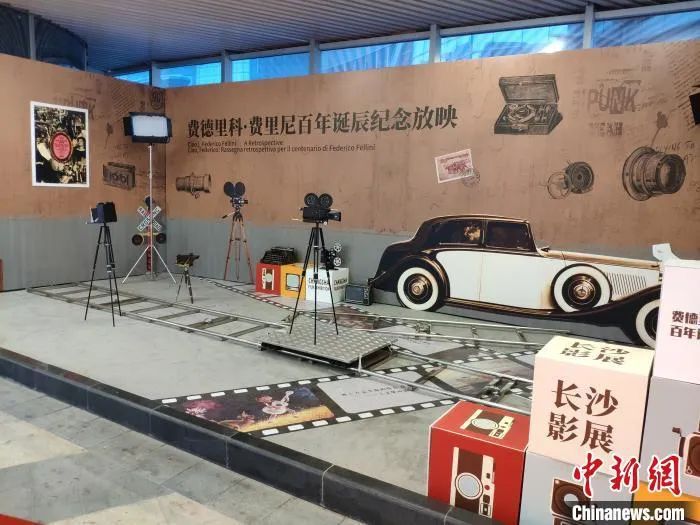
On 4 December 2020, the Changsha Film Festival, a screening commemorating the centenary of Italian filmmaker Federico Fellini’s birth, was launched. (Credit: Wang Haohao)
Reporter: Your films have touched generations of Chinese audiences. What do you know about Chinese cinema and culture? What would you like to say to Chinese film fans?
Giuseppe Tornatore: I have always been fascinated by Chinese culture. An executive producer I know lived in China for many years and used to tell me about all the things he saw and heard in China, always piquing my curiosity about Chinese culture. I’ve also been to China many times, and each time I leave with fond memories.
I love Chinese cinema, including the work of directors such as Zhang Yimou and Chen Kaige, and I love films that give me the opportunity to learn about the country and its culture, as well as films that are unique in their narrative structure, which don’t necessarily tell a direct story about Chinese culture or Chinese people, but show a unique perspective that is different from the rest of the cinema system.
I have had a lot of contact with the organising committee of the Shanghai International Film Festival, but I have never had the chance to go before because of my work. This time, I decided to come to SIFF no matter what to get to know the beautiful city of Shanghai. I am looking forward to seeing more new ideas from Chinese films and the rich culture behind them.
I would like to say to all my Chinese fans: thank you from the bottom of my heart for loving my films, I feel the energy you bring to me despite the distance, and I value your love for my films very much.
If you liked this article why not read: International Stars Shine at the 27th Shanghai International Film Festival

